It’s become a bit of a tradition for me to share an end of year reflection in January, I always intend to do this in December, but it never happens, so January it is. I’ve been in two minds whether to write one this year though because 2024 did not go as expected.

View from the ward
At the beginning of the year I woke up one morning and couldn’t feel my hands properly. That was the start of the rapid onset of a bewildering and debilitating range of symptoms. After numerous scans, tests, and two hospital admissions, I was eventually diagnosed with a rare autoimmune disease. It’s not curable, but it is treatable, with a lot of medication and mixed success. I’ve been lucky to be more or less fit and healthy for most of my life, so to suddenly lose the ability to do so many things that I previously took for granted has been challenging to say the least. I can no longer dance, sew, or wear my fancy shoes, writing is a challenge, walking is slooooow some days, and traveling any distance without assistance is difficult. Having to slow down has forced me to recenter and I’m still trying to figure out what life will be like from this point on, who I’ll be when I can no longer do so many of the things that make me who I am. There’s very little data about how this condition is likely to progress, hopefully things will improve once we get the medication right, but who knows? I’m just trying to take it as it comes.
Despite all of the above, I’m still working with the OER Service at the University of Edinburgh. I’m immensely grateful to my colleagues for their support, and to my managers who have put adjustments in place to enable me to keep working from home. I really miss going over to the office in Edinburgh, but the four hour round trip is beyond me for the time being. I never thought I’d miss that Scotrail commute but here we are.
OER24 Conference

MTU Cork
At the beginning of the year, before things took a turn for the worse, I went to the OER24 Conference in Cork with our OER Service intern Mayu Ishimoto, to present a paper on Empowering Student Engagement with Open Education. It was great to be there with Mayu and there was a lot of interest in her experience as a student working with the OER Service. The highlight of the conference for me was undoubtedly Catherine Cronin and Laura Czerniewicz’s inspiring keynote, The future isn’t what it used to be: Open education at the crossroads, which explored their own lives and experiences as open educators and the possibilities generated by their profound and timely Higher Education for Good. You can read my reflection on the the conference here OER24: Gathering Courage. Also! MTU has some really interesting architecture.
Their Finest Hour
Their Finest Hour project came to an end in June with the launch of the University of Oxford’s online archive of 25,000 new stories and artefacts from the Second World War, all of which have been shared under open licence. I’m very proud that our Edinburgh collection day gathered and contributed 50 stories and many hundreds of photographs, thanks to the incredible work of project intern Eden Swimer. You can read Eden’s thoughtful reflection on his internship here Reflections on ‘Their Finest Hour’. I nominated Eden for an ISG Recognition Award in September and was delighted that he won the award for Student Staff Member of the Year.
Learning Analytics
A fair chunk of my time last year was taken up with setting up and acting as business lead for a new learning analytics project. As part of the university’s VLE Excellence programme, the project aims to identify the learning analytics data available in Learn and other centrally supported learning technology applications, and enable staff and students to access and use it to support their teaching and learning. It’s a long time since I’ve been involved in anything related to learning analytics so it’s been interesting to get my head back into this space again, particularly as the project is focused on empowering staff and students to access their own learning analytics data..
EDE to DSDT
In October we had a small restructuring at work and my team moved from Educational Design and Engagement (EDE) into a new section, Digital Skills, Design and Training (DSDT). I’ve really enjoyed working in EDE over the last 5 years, and we’ll continue working closely with many of the services there, but I’m also excited about the opportunities the new section will bring. I’m particularly looking forward to working with our Wikimedian in Residence again and exploring new open textbook projects with our Graphic Design Team.
AI and the Commons
I’ve been dipping my toes back into the murky waters of ethics, AI and the commons and have written a couple of blog posts on the ethics of AI in relation to OER and contested museum collections.
All the other stuff…
Because my health has been so ropey, I’ve had to step back, hopefully temporarily, from most of the additional voluntary work I do, including assessing CMALT, sitting on award panels, contributing to City University of London’s MSc in Digital Literacies and Open Practice, and attending policy events. I really miss the connections these activities used to bring so I’ve been trying to focus more on reconnecting through social media networks….
…which has been “interesting” given the hellscape of most social media platforms these days. I’ve barely used facebook for over a decade, though I still have an account there, primarily for finding last cats (long story). Twitter was always my main social media channel, I’ve had an account there since 2007, and it’s where I found my open education community. Seeing twitter degenerate into a fascist quagmire has made me so angry, however it was still a wrench to leave. In March we mothballed the femedtech account, I stepped back from my own account later in the year, before finally deleting it. This was one of my last retweets. It seems fitting.

I’ve been slowly migrating to Bluesky and Mastodon over the course of the year and it’s been great to start building new and old communities there. I like the different pace of the two platforms. Bluesky feels like the place to keep up to date with news and events, while Mastodon provides space for slower, quieter, thoughtful conversations.
This enforced slowing down, together with the changing social media landscape, has also prompted me to start blogging again. I hadn’t abandoned this blog completely but I’d definitely got out of the habit of writing here regularly. It’s been good to take the time to think and reflect again, and to try and express some of that reflection in words. At the end of the year I wrote a post about Slowing Down which really seemed to strike a chord with people. Across all these different spaces, it feels like little dormant shoots of community are reemerging. We need these human connections now more than ever.
Beginnings and Endings
On a personal level September was a month of beginnings and endings. My daughter went off to university and it’s been great to see her stretch her wings and find her people. It’s also been illuminating to see the university’s systems from the student side.
In September we had to say goodbye to our beloved cat Josh. He was magnificent, and he was my best boy, despite his habit of going round the neighbourhood scrounging for food and pretending to be a stray. He turned up twice on a local lost cats facebook group. The shame. I miss him terribly.

Josh 2014 – 2024
I also had to say goodbye to our family home in Carriegreich on the Isle of Harris. This was my grandparents and then my father’s home and I spent a lot of time here during my childhood. This is where I learned how to cast a line, set an (illegal) net and row a boat, collect the eggs and feed the sheep, tell a guillemot from a razorbill, pick up Russian klondykers on the ancient shortwave radio, and keep an eye out for the grey fishery protection vessels sliding out of the mist. It’s where I spent hours wandering over the croft and the shore lost in other worlds. I very rarely remember dreams, but I still dream about this house and this shore. We had hoped to visit the house one last time, but sadly that wasn’t possible because Josh was so unwell. We said goodbye to Josh and to Carriegreich within the week.

Carriegreich
To try and make some sense of where I am now, I’ve been re-reading Ursula Le Guin’s Tehanu. It’s always been one of my favourite Le Guin books, I love the writing and the pacing and the fact that it centres the experiences of an older woman finding her place and her power in a changing world through the different phases of her life.
“Tenar sighed. There was nothing she could do, but there was always the next thing to be done.”
I’m not sure what I’ll be doing next, but I am sure there will always be something to be done.

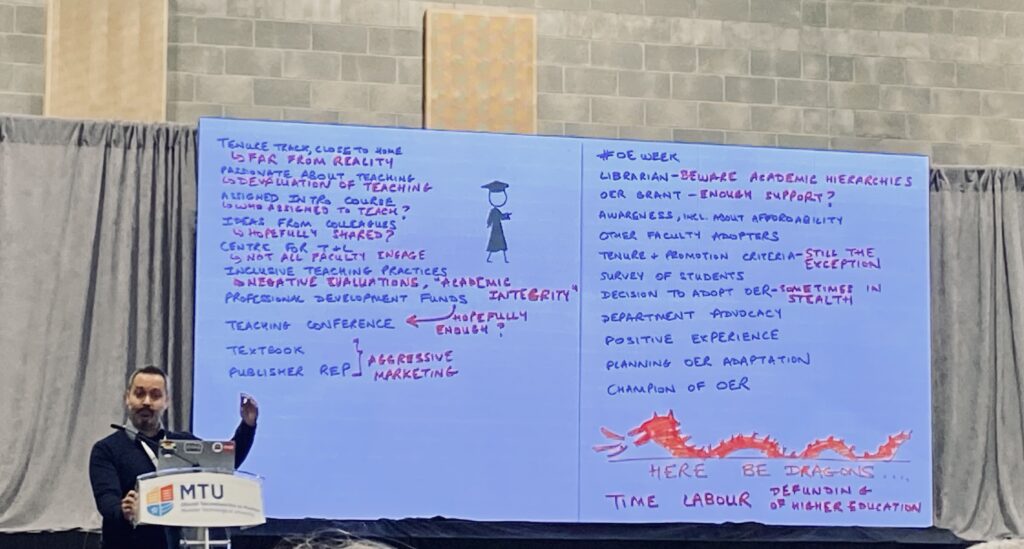

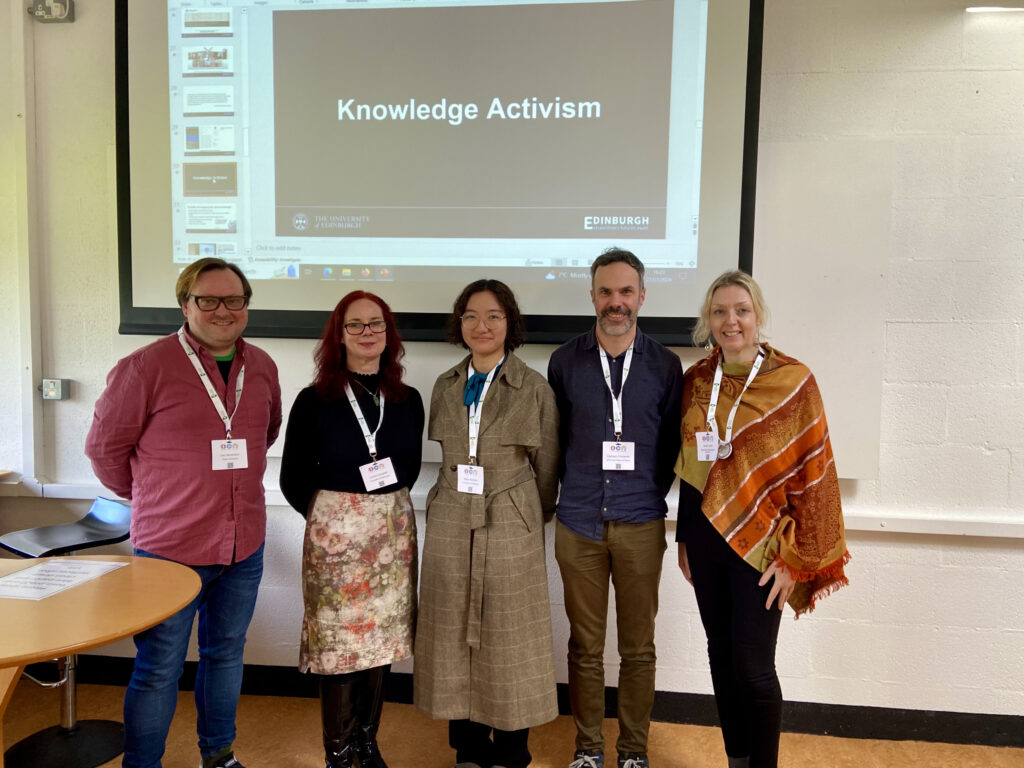


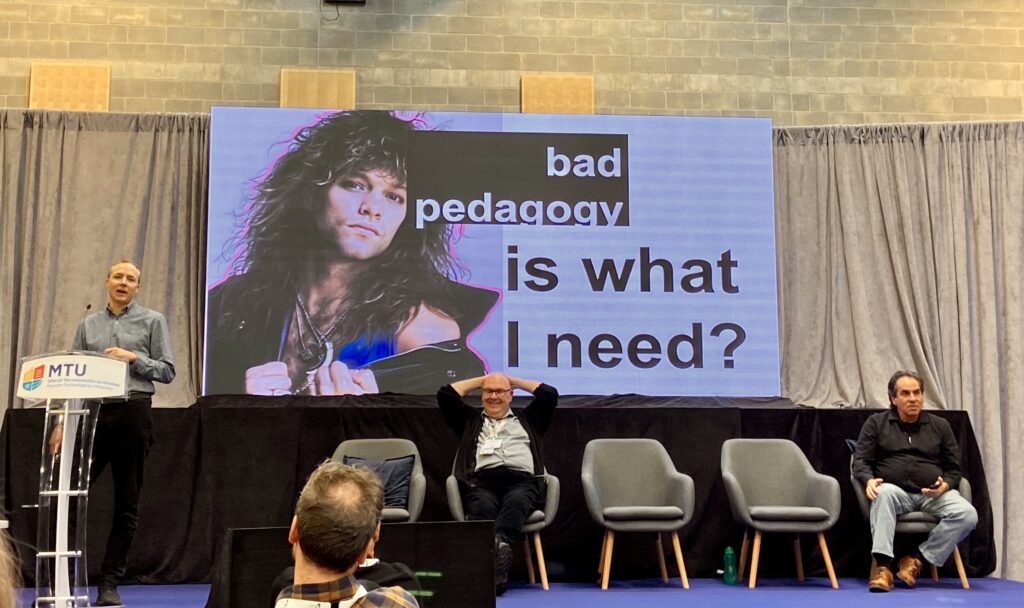


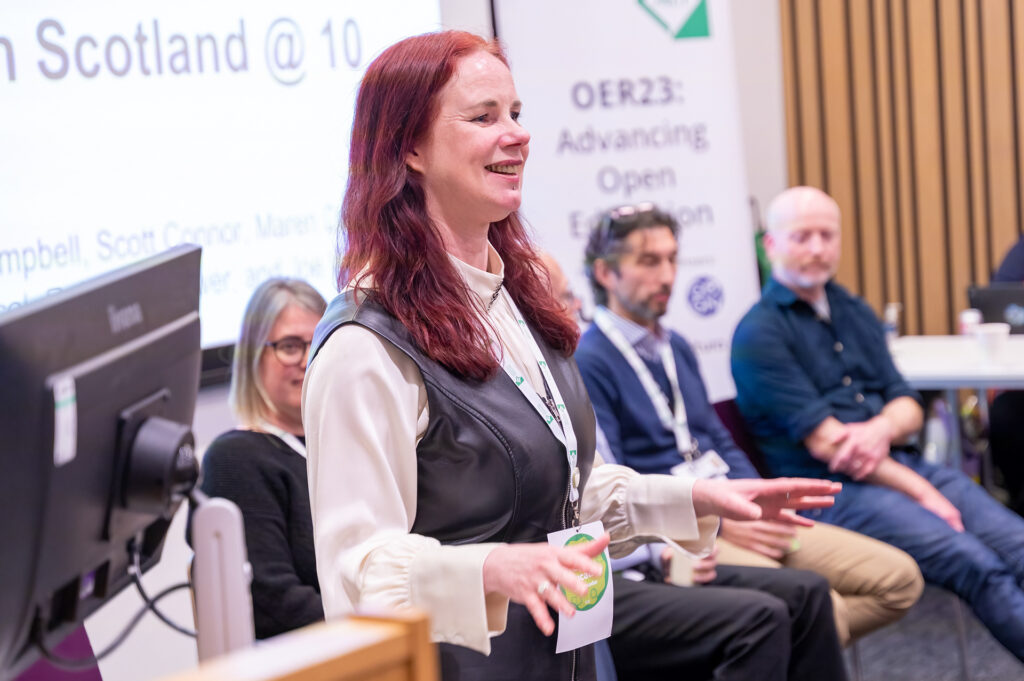
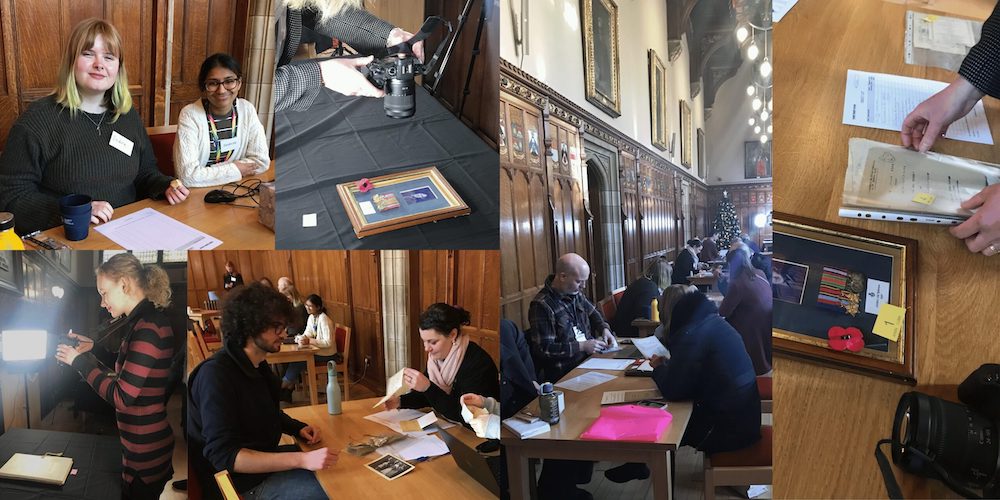
 “Quilting has always been a communal activity and, most often, women’s activity. It provides a space where women are in control of their own labour: a space where they can come together to share their skill, pass on their craft, tell their stories, and find support. These spaces stand outside the neoliberal institutions that seek to appropriate and exploit our labour, our skill, and our care. The FemEdTech-quilt assemblage has provided a space for women and male allies from all over the world to collaborate, to share their skills, their stories, their inspiration, and their creativity. We, the writers of this chapter, are five humans who each has engaged with the FemEdTech Quilt of Care and Justice in Open Education in different ways, and who all have been active in the FemEdTech network.”
“Quilting has always been a communal activity and, most often, women’s activity. It provides a space where women are in control of their own labour: a space where they can come together to share their skill, pass on their craft, tell their stories, and find support. These spaces stand outside the neoliberal institutions that seek to appropriate and exploit our labour, our skill, and our care. The FemEdTech-quilt assemblage has provided a space for women and male allies from all over the world to collaborate, to share their skills, their stories, their inspiration, and their creativity. We, the writers of this chapter, are five humans who each has engaged with the FemEdTech Quilt of Care and Justice in Open Education in different ways, and who all have been active in the FemEdTech network.” 

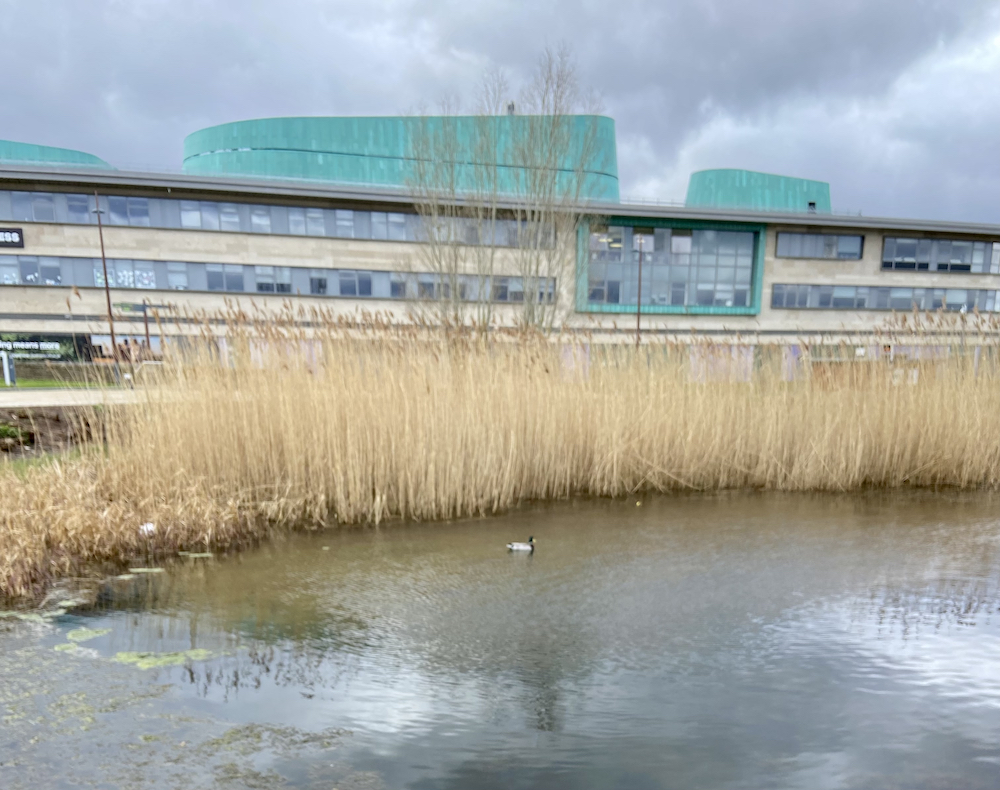

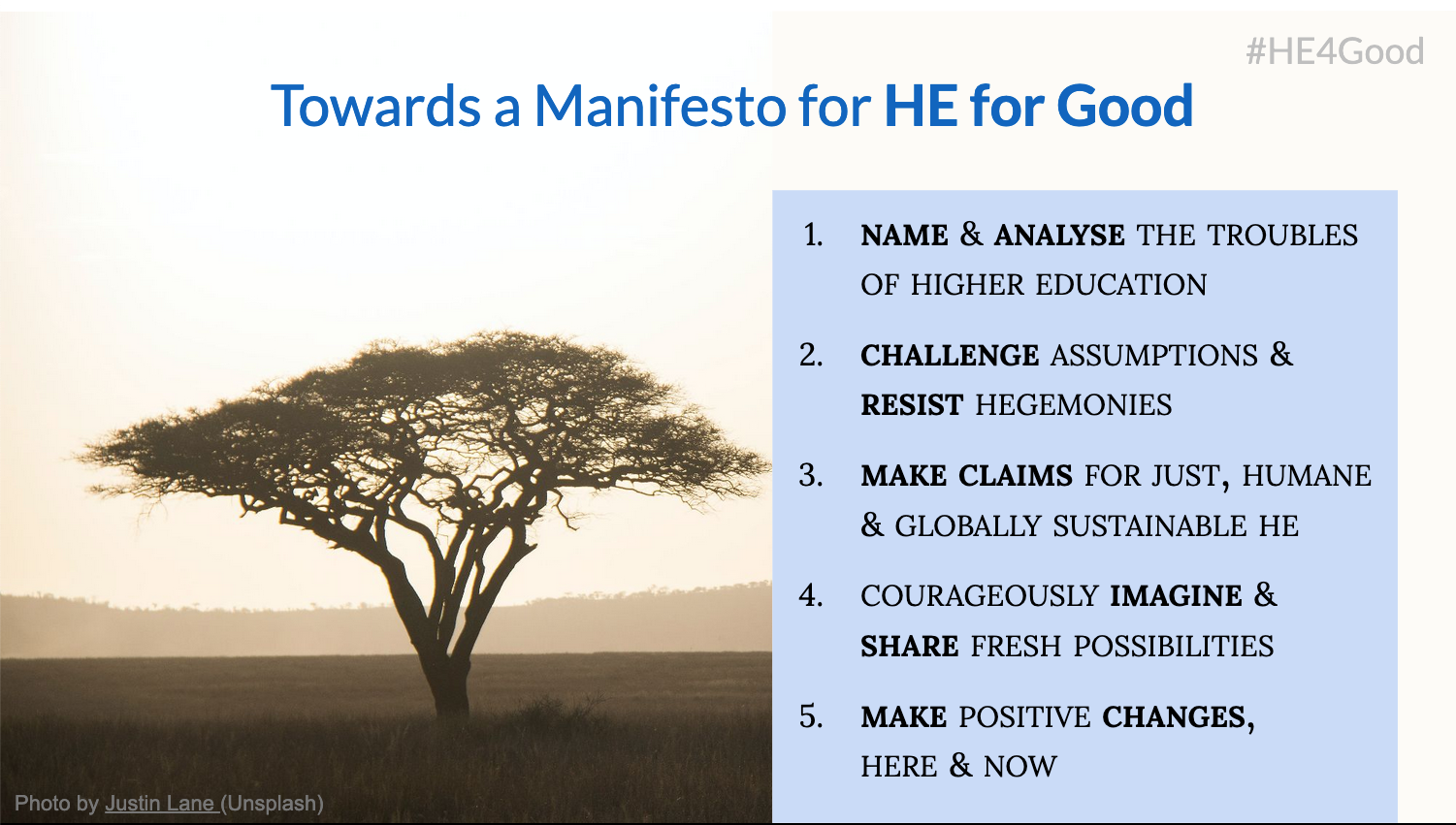
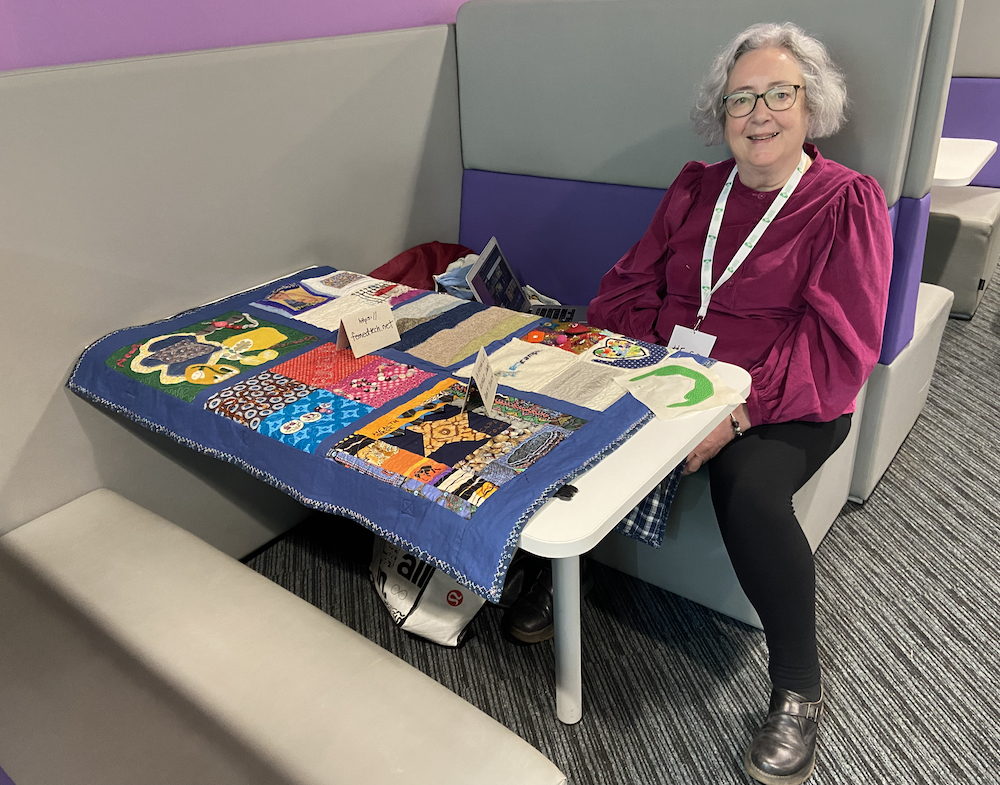
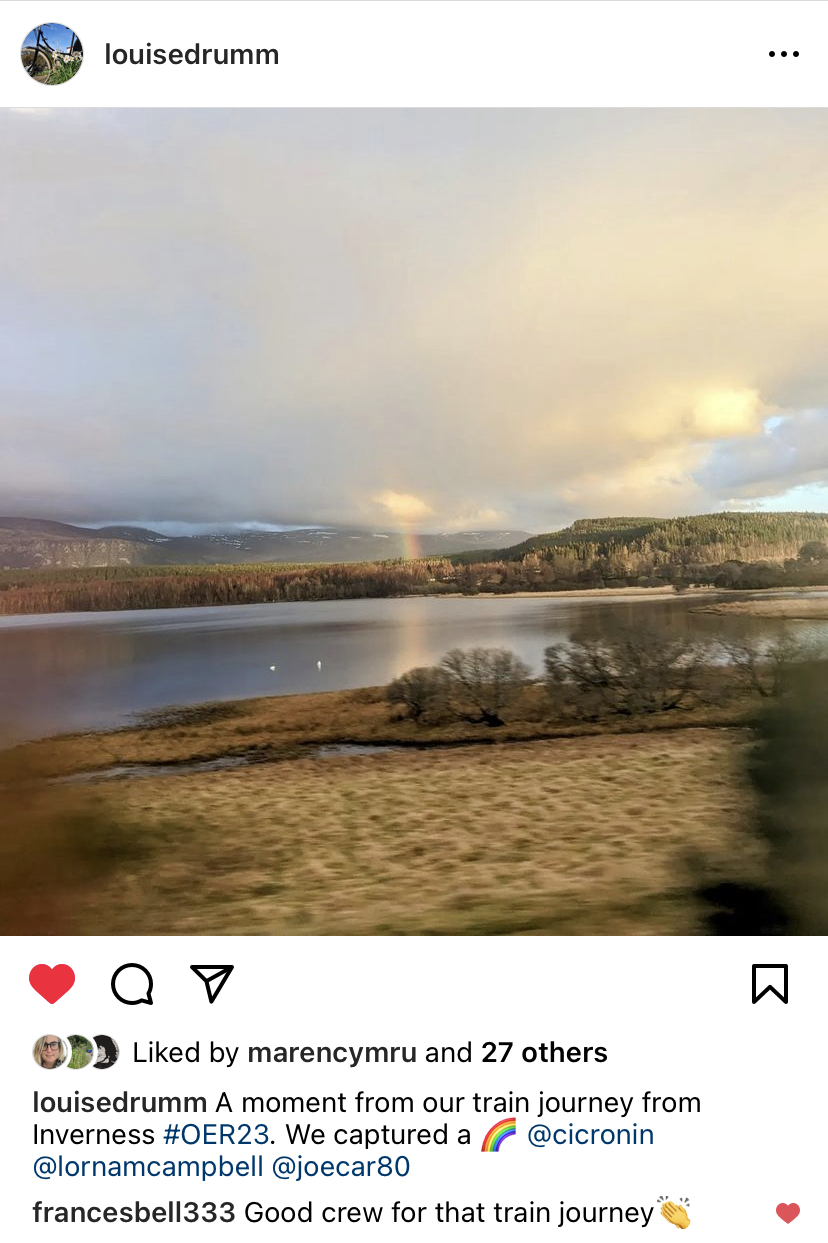

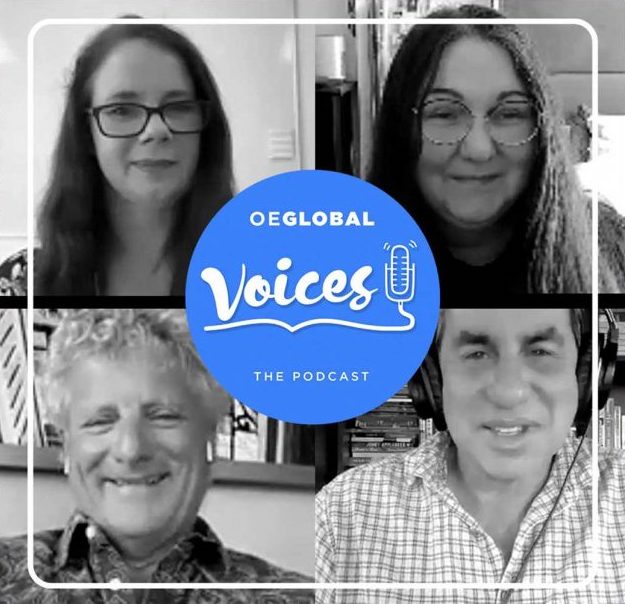 Charlie talked about the GeoScience Outreach course where students co-create teaching and learning materials that are then adapted by Open Content Creation interns and shared on
Charlie talked about the GeoScience Outreach course where students co-create teaching and learning materials that are then adapted by Open Content Creation interns and shared on 



